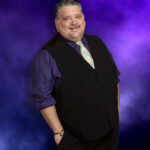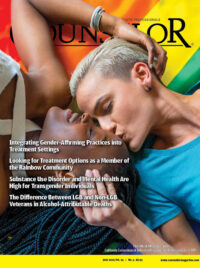Share

Let’s take a moment to look at what is known about Pelagius. He was born around 354 AD in Wales, Britain. He was educated in both Greek and Latin, a monk but not a cleric; he was never an ordained priest. In his early years, he was admired by no less a person than Augustine of Hippo, who called him “a saintly man.” When he moved to Rome, he became concerned about the moral laxity in the city, believing it was partly the result of Augustine’s teachings concerning divine grace. Pelagius was concerned about the emphasis that Augustine placed upon God’s grace—the idea that since the Fall of Adam, every good thought or action was dependent upon God. We could do nothing on our own. There was no teaching that affirmed the need for our response. There was little teaching concerning human responsibility; that we need to be accountable for our behavior. He was particularly disturbed by a famous quotation from Augustine, “Give me what you command and command what you will.”
Pelagius believed that this saying discounted free will, turning man into a mere automation. He soon became a critic of Augustine, disagreeing with him concerning original sin and the working of God’s grace in perfecting salvation. Pelagius argued that if human beings could discipline themselves in the way exemplified by Jesus, then they could remain perfect. He believed that grace needed to be connected with human choice. Pelagius’s personal discipline made him extremely puritanical, teaching a strict regimen to his disciples in order to ensure moral purity (p. 7–8).
The church hierarchy ultimately supported the theological arguments of Augustine, and Pelagius was denounced as a heretic at the Council of Carthage in 418 AD. It is believed that Pelagius died of natural causes in Palestine around 420 AD (2012, p. 8).
That we are able to do good is of God, but that we actually do it is of ourselves. That we are able to make a good use of speech comes from God; but that we do actually make this good use of speech proceeds from ourselves. That we are able to think a good thought comes from God, but that we actually think a good thought proceeds from ourselves (Booth, 2012, p. 51).
I think that many oldsters who have put our AA “booze cure” to severe but successful tests still find they often lack emotional sobriety. Perhaps they will be the spearhead for the next major development in AA—the development of much more real maturity and balance (which is to say, humility) in our relations with ourselves, with our fellows, and with God.
Those adolescent urges that so many of us have for top approval, perfect security, and perfect romance—urges quite appropriate to age seventeen—prove to be an impossible way of life when we are at age forty-seven or fifty-seven.
Since AA began, I’ve taken immense wallops in all these areas because of my failure to grow up, emotionally and spiritually. My God, how painful it is to keep demanding the impossible, and how very painful to discover finally, that all along we have had the cart before the horse! Then comes the final agony of seeing how awfully wrong we have been, but still finding ourselves unable to get off the emotional merry-go-round (1958).
About Me
Larry Hearn is a seasoned SUD counselor, licensed Religious Science Practitioner, and a committed advocate for healing and personal transformation. Armed with a Social Model Studies Certificate from the CCAPP Academy (formerly known as the CAARR Institute), education from Modesto Junior College, and certification from CCAPP, Larry boasts a robust 24-year background in addiction counseling. As a member of the California Coalition of Certifying Organizations (CCCO), he played an active role in shaping the California Code of Ethics and Sanctions Matrix.
Larry currently serves as Supervising Editor for Counselor Magazine and Media & Infrastructure Manager for the California Consortium of Addiction Programs and Professionals (CCAPP), where he combines his clinical insight with media and educational strategy to uplift the profession and support the workforce.
His passion extends to facilitating treatment and education groups, grief circles, and individual counseling, creating a secure and supportive environment for individuals to navigate recovery, grief, and emotional trauma. He enjoys training and mentoring SUD counselors. In his capacity as a licensed Religious Science Practitioner, he seamlessly integrates therapeutic and spiritual modalities, guiding individuals on a journey toward enduring recovery and inner peace. Beyond addiction counseling, Larry underscores the significance of grief healing and personal growth in his compassionate approach.











 Counselor Magazine is the official publication of the California Association of Addiction Programs and Professionals (CCAPP). Counselor offers online continuing education, article archives, subscription deals, and article submission guidelines. It has been serving the addiction field for more than thirty years.
Counselor Magazine is the official publication of the California Association of Addiction Programs and Professionals (CCAPP). Counselor offers online continuing education, article archives, subscription deals, and article submission guidelines. It has been serving the addiction field for more than thirty years.